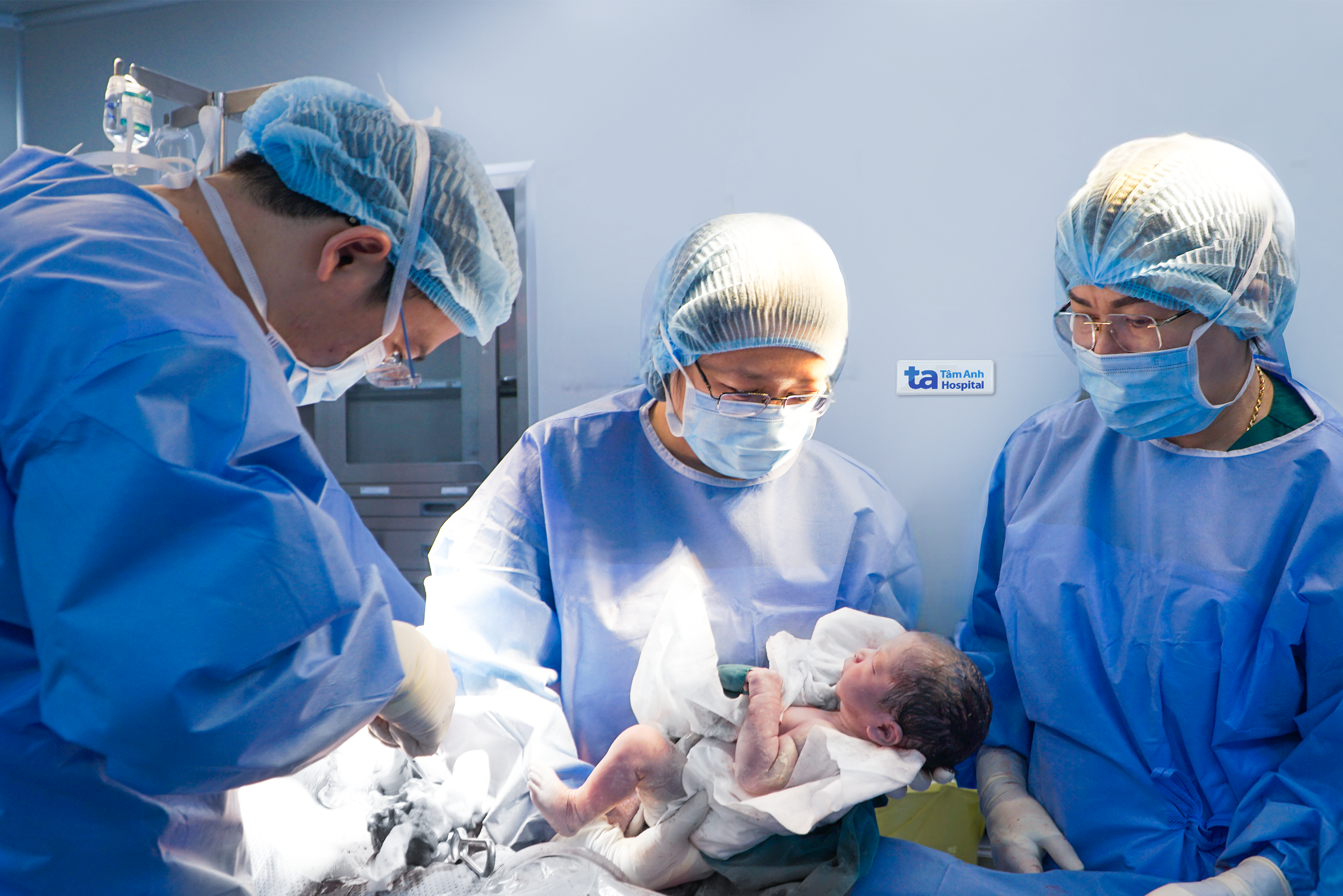"This is truly a miracle for my family," said Ngan, a resident of Long An, after her daughter was born last month at Tam Anh General Hospital in Ho Chi Minh City.
 |
Doctors at the Obstetrics and Gynecology Center welcome Ngan's daughter. Photo: Tue Diem |
Ngan and her husband tried to conceive for 4 years without success. Tests revealed that her husband had low sperm motility, while Ngan suffered from hyperthyroidism, asthma, and irregular periods. They underwent in vitro fertilization (IVF) at several hospitals, but embryo transfers were unsuccessful.
They sold their land and traveled north for further IVF treatments, but Ngan's eggs developed slowly, resulting in few retrievable eggs and poor embryo formation. After a decade, 10 failed embryo transfers, and a substantial financial investment, they remained childless. Doctors suggested using donor eggs due to Ngan's age and underlying health conditions.
The couple decided to take a break and save money. In late 2023, they visited Tam Anh General Hospital in Ho Chi Minh City, prepared to consider donor eggs or adoption if this attempt failed. After two rounds of egg stimulation, 9 eggs were retrieved and 5 embryos were created. Suspecting chromosomal abnormalities as the cause of previous failures, doctors recommended preimplantation genetic testing (PGT). The results showed 4 embryos with structural abnormalities on chromosome 17.
Chromosome 17 abnormalities relate to chromosome structure or copy number. Doctors advised the couple to undergo genetic testing for similar abnormalities, but their results were normal. Therefore, the abnormalities likely arose during egg or sperm production, possibly due to Ngan's declining reproductive function after age 35. Older eggs are more prone to chromosomal mutations when combined with sperm.
Ngan had only one remaining embryo, of average quality, with a low chance of successful implantation. Studies show that women over 45 have a less than 5% chance of pregnancy. Doctors meticulously prepared her uterine lining before the transfer. Ten days later, a pregnancy test came back positive, bringing the couple to tears.
Due to her age and hyperthyroidism, Ngan required close monitoring for pregnancy and thyroid complications. She also received treatment for gestational diabetes. At nearly 39 weeks, she delivered a healthy baby girl weighing 3.2 kg via cesarean section.
Dr. Nguyen Thi Yen Thu from the Obstetrics and Gynecology Center explained that women over 45 with infertility were previously advised to use donor eggs. However, advances in assisted reproductive technology, such as egg collection combined with PGT, allow older women to have healthy biological children.
Nevertheless, doctors caution that women over 40 experience declining ovarian function and enter perimenopause or menopause, significantly reducing their chances of conception. The risk of chromosomal abnormalities in eggs increases, making it harder to achieve a healthy pregnancy. To mitigate this risk, women are encouraged to complete their families before 35. Couples experiencing infertility should seek comprehensive reproductive health evaluations and PGT to identify and address any abnormalities promptly, improving treatment outcomes and reducing time and costs.
Tue Diem
*Name has been changed












